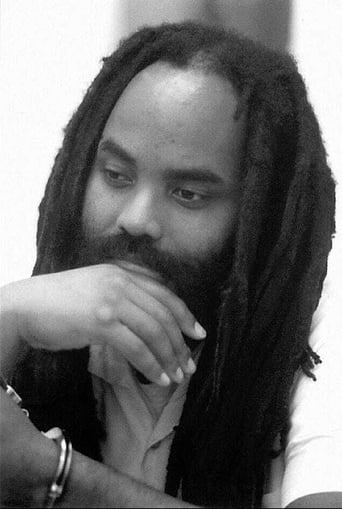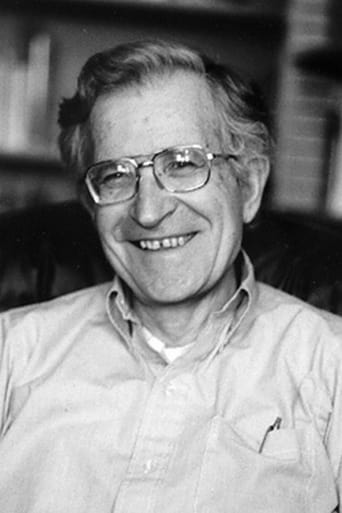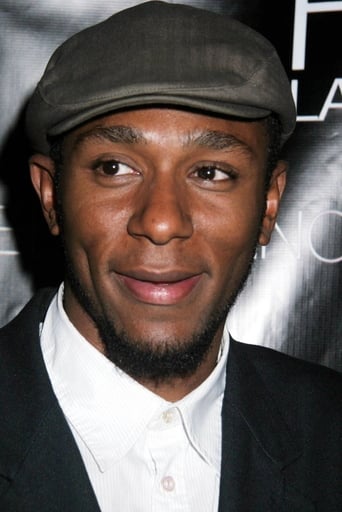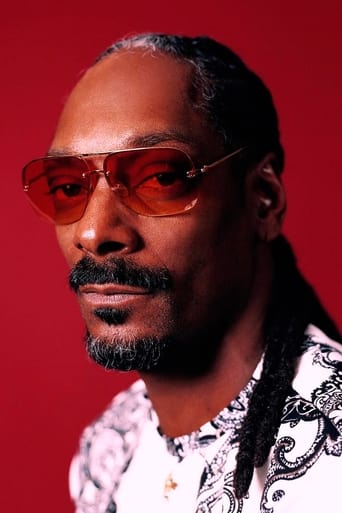Evengyny
Thanks for the memories!
BootDigest
Such a frustrating disappointment
Pacionsbo
Absolutely Fantastic
Neive Bellamy
Excellent and certainly provocative... If nothing else, the film is a real conversation starter.
theskylabadventure
It is a bit of an oddity that this criminally under-exposed film remains under the radar. With an Oscar-winning actor as Executive Producer and appearances from the likes of Noam Chomsky, Mos Def and Snoop Dogg, it surprises me that the film never managed to generate any real publicity.On the surface, the film concerns itself with the case of Mumia Abu Jamal, a former Black Panther, activist and journalist who was convicted of murdering a Philadelphia cop and sentenced to death. Detractors of the film have remarked on the information the movie chooses to omit, and some felt cheated out of a clearer understanding of the crime itself. The truth seems to be that there is no clear picture of the crime itself, but this is not the point of the movie.The film is engaging from the start, with an impressive ability to convincingly create the world in which Mumia grew up. Philadelphia in the '60s and '70s was, by all accounts, a pretty horrifying place to be if you were black. The film makes a concentrated reference to the MOVE atrocities (look it up) in order to support the idea that justice had hugely different definitions depending on the colour of your skin. This might sound like leftist propaganda but then again, if you're not a minority, it's always easy to dismiss and belittle the idea of racial injustice.The movie's real strength is in the questions it raises about the trial and subsequent conviction of Mumia, following the murder he supposedly committed. The case seems to be full of holes and contradictions and we are forced to consider the strong possibility that another man committed the murder. Given the political connotations of the case and the public anger surrounding it, is it unimaginable that a police force would be more concerned with closing it quickly than with getting it right? Is it inconceivable that an opportunity was seen and seized to remove an educated and "troublesome" black man from general circulation? Is it inconceivable that the trial itself was a farce cultivated to ensure the jurors' return of a guilty verdict in order to appease white public outcry? I too felt frustrated that the film did not attempt to get to the truth at the heart of the case but, again, I do not believe that to be the point of film. Mumia's guilt or innocence is almost of secondary importance to his right to a fair trial, a right which, it seems, he has been denied for over thirty years now.To paraphrase Chomsky, if we do not believe in true, fair and equal justice for all, we do not believe in justice at all. This film is not perfect, but it raises universal questions about justice and equality and this makes it essential viewing.
evening1
I'd have to watch this film over again to really get it. It's a very complicated story from a time when racism and police brutality were much less under the surface.It's ironic that it's a British guy who's leading the charge to focus attention on Mumia, who uses his weekly phone time from Pennsylvania's Death Row to do a radio show. (Is that why he doesn't get much screen time in this movie?) Filmmaker Evans fails to identify many prominent people willing to go on camera in support of the honey-voiced prisoner who wants another trial.The Brit's interviewing style seems highly credulous. It might have balanced his film to try to talk to those who mourn the slain police officer Flaherty.
SanFernandoCurt
It's interesting this is mostly a British-funded film (although it's hard to pin down nationality of anything as amorphous as movies, anymore). Some time ago, the Mumia case began to droop in the United States - unable to generate passion among even the most blinkered true Lefty believers. In 1981, Mumia was found sitting on a Philadelphia sidewalk, badly wounded by bullets from a policeman's gun, with his own fired gun beside him; a few feet away was the dead policeman, full of bullets from Mumia's said gun. That's pretty much the case. Since then, we've been told up is down, night is day, and Mumia is innocent.This movie avoids like the plague those actual, damning details of the case, and launches into a long, blobby, tiresome recounting of racism in America. We get input from such notable historians as Snoop Dog. Europeans must go ga-ga over this stuff; on this side of the pond, we can recite it by rote. There's a limit to even the most well-mapped guilt trips - not that this is on that list, and it's a wonder movies like this get funded these days. It probably had an audience in the... 5s.
Black Narcissus
I saw this film recently at the NFT as part of the London Film Festival at what was surprisingly a very well attended screening.The documentary's main focus is to look at the case of Black Panther Mumia Abu-Jamal, who currently awaits death for the murder of a Philadelphia Policeman on the night of December 9, 1981. The date also happens to be the day that William Francome who is the films main narrator was born in the UK.Francome takes a personal interest in Mumia's case and travels across America trying to make the case that he has been the subject of a grave miscarriage of Justice. In support of his case he gets some great interviewee's ranging from Angela Davis & Moam Chomsky to Mos Def & Snoop Dogg (who I must say was really interesting and thoughtful). As well as lawyers, political activists and Mumia's relatives.Unfortunately, instead of focusing on the actual case which at it's heart is still a mystery. In that, Mumia was at the location and a policeman was killed (There's a strong suggestion that the policeman was killed by a third party possibly another cop). The film instead widens out to look at Police Brutality, Racism in America and the Death Penalty amongst other things.That said, if like me you knew nothing of the Mumia or his case, the film is an eye opener. From the beginning the film has a great use of Graphics and Music and is well put together. I doubt that there is anyone who having seen the film wouldn't be interested in knowing more about the case.The real pity is that the film though made with a lot of British talent (The actor Colin Firth was an Executive Producer) there is little chance it'll get seen in the UK outside festival screenings. Illuminating and well put together documentary which I definitely recommend seeing.Black Narcissus http://www.imdb.com/mymovies/list?l=14198203_




